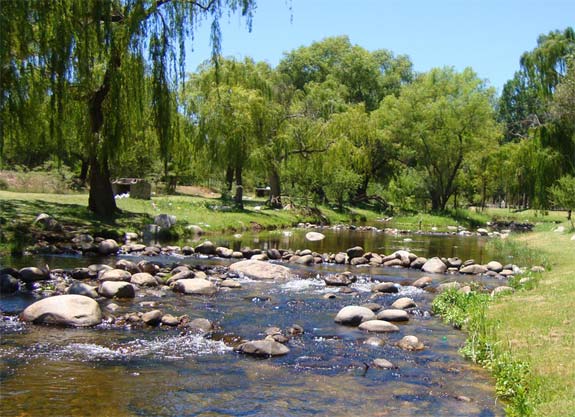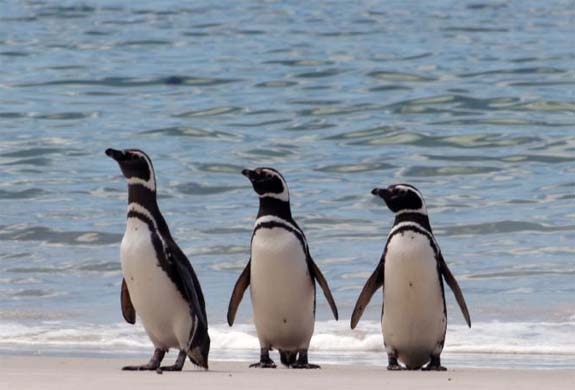.
Eighth International Conference on
Advances in New Technologies, Interactive Interfaces and Communicability ( ADNTIIC 2017 )
Design, E-commerce, E-learning, E-health, E-tourism, Web 2.0 and Web 3.0
:: Córdoba (Huerta Grande) – Argentina ::
November 5 – 8, 2017
| Home |
| Topics |
| Important Dates |
| Paper Submission |
| Organization |
| Program |
| Registration |
| Publications |
::. BBK .::
Birkbeck University of London
UK
::. FUN .::
Future University Hakodate
Japan
::. HAN .::
HAN University of Applied Sciences
the Netherlands
::. IIMROHTAK .::
Indian Institute of Management Rohtak
India
::. ITB .::
Institute of Technology Bandung
Indonesia
::. IUAV .::
University of Venice
Italy
::. KETTERING .::
Kettering University
USA
::. MCU .::
Ming Chuan University
Taiwan
::. METU .::
Middle East Technical University
Turkey
::. MJU .::
Myongji University
South Korea
::. MSU .::
Moscow State University
Russia
::. NNU .::
National United University
Taiwan
::. NYU .::
New York University
USA
::. POLSL .::
Politechnika Slaska University
Poland
::. PURDUE .::
Purdue University
USA
::. TSINGHUA .::
Tsinghua University
China
::. U-AIZU .::
University of Aizu
Japan
::. UB .::
"Vasile Alecsandri" University of Bacău
Romania
::. UBA .::
Universidad de Buenos Aires
Argentina
::. UCC .::
University College Cork
Ireland
::. UCL .::
University College London
UK
::. UCR .::
Universidad de Costa Rica
Costa Rica
::. UEF .::
University of Eastern Finland
Finland
::. UGR .::
Universidad de Granada
Spain
::. UHK .::
University of Hong Kong
China
::. UIOWA .::
University of Iowa
USA
::. ULB .::
Free University of Brussels
Belgium
::. UM .::
University of Malta
Malta
::. UMD .::
University of Michigan-Dearborn
USA
::. UNC .::
Universidad Nacional de Córdoba
Argentina
::. UNCU .::
Universidad Nacional de Cuyo
Argentina
::. UNED .::
Universidad Nacional de Educación a Distancia
Spain
::. UNI .::
Universidad Nacional de Ingeniería
Peru
::. UNIBO .::
Università di Bologna
Italy
::. UNIGE .::
Università degli Studi di Genova
Italy
::. UNILJ .::
University of Ljubljana
Slovenia
::. UNIMOL .::
University of Molise
Italy
::. UNIMIB .::
University of Milano–Bicocca
Italy
::. UNPA .::
Universidad Nacional de la Patagonia Austral
Argentina
::. UNSE .::
Universidad Nacional de Santiago del Estero
Argentina
::. UofO .::
University of Ottawa
Canada
::. UOI .::
University of Ioannina
Greece
::. UPR .::
Universidad de Puerto Rico
Puerto Rico
::. US .::
Universidad de Sevilla
Spain
::. USC .::
University of Southern California
USA
::. UTN .::
Universidad Tecnológica Nacional
Argentina
::. UWI .::
University of the West Indies
Jamaica
::. VMMI .::
Virtual Maastricht McLuhan Institute
the Netherlands
::. WASEDA .::
Waseda University
Japan
::. WSU .::
Wayne State University
USA
HOME |
|
Introduction and Topics, Deadlines and Program Committee 1. Introduction and Topics The user interface is the environment par excellence where the latest breakthroughs in the formal and factual sciences converge. In the design of the current and future interactive systems, the presentation of the content on the screen is the key to the success of the rest of the components which make up an avant-garde computer science structure. The year 2010 opens an interesting decade in which to consolidate communicability, especially with the constant (r)evolution of the interfaces of the interactive systems. Right now we are starting to see the first results of the intersection of scientific knowledge to increase the quality of telecommunications in the daily life of millions of users. However, the interactive systems will keep on programming from the point of view of design of the interfaces, using the last advances in the software and the constant progress of the hardware. A democratization of the future models in human-computer interaction will ease the interaction in the environments of immersive multimedia oriented towards education, health, work and leisure time. The current era of interactive communication makes us reflect and work daily to meet the needs of the societies to which we belong, and tends to improve the quality of life of each one of its members. In this environment the new technologies can and must be within reach of everyone. A state of the art will be the starting point of the works until reaching the future technological tendencies born from the interaction between the human being, the constant technological (r)evolution and the environment. This is a place where the intersection of knowledge deriving from the formal and factual sciences can enrich in a masterful way each one of the research projects presented and related to the last generation interactive systems online and off-line. The (r)evolution of the net must allow the human being to take a steady flight towards new horizons where the technological breakthroughs are shared by the base of the pyramid –the general public, in the least possible time. Important steps have been taken in that direction in the last years thanks to the globalization of telecommunications and social networks. However, the costs stemming from the free access to digital information and/or the legislations in force, prevent even today that flight in many societies to millions of potential users of multimedia interactive systems. In the current scientific environment we intend to build a bridge of solutions to eradicate problems, suggesting innovating solutions and future guidelines of action thanks to the lessons learned with the research works we have made or that are currently in progress. Many conferences are focussed on specific aspects of computer science, multimedia, education, artificial intelligence, computer vision, etc., and bring together leading experts in a particular field or sometimes on a specific technology. At such large conferences students are often marginalized or relegated to poster sessions, for instance. The conferences, workshops, symposiums, etc., are not a very big scale and aim to promote dialogue between established professors and graduate students working on new directions. Hence topics from the whole range of human-computer interaction, multimedia, software, design, etc. are welcomed. Last year’s symposiums, workshops, conferences, etc., organized by ALAIPO and AInCI, for instance, included papers on the topics (see below the alphabetical order). An extensive listing connotes and reflects the requirement and also skill necessary to find intersection zones of the disciplines among the different domains, fields, and specialities; which at the same time potentially boosts and merges the formerly different scientific views (see below, we have only some main areas). All contributions –papers, workshops, demos, research-in-progress, posters and doctoral consortium, should be of high quality, originality, clarity, significance and impact. In the current international conference it is demonstrated how with a correct integration among professionals of formal and factual sciences interesting research lines in the following subjects Advances in New Technologies, Interactive Interfaces and Communicability and other computational main areas are solicited on, but not limited to (alphabetical order): :: Communicability and Design • Aesthetic and Creative Design :: E-commerce • Benchmarking :: E-learning • Collaborative Learning :: E-health • Bioengineering :: E-tourism • Augmented/Mixed Reality for New Media Art :: Interactive Interfaces • Advances in Human-Computer Interface :: Digital Information and New Media • Architecture Documentation :: Software and Systems Engineering • Open Source Software and Applications :: Web 2.0 and Web 3.0 • Big Data All submitted research works will be reviewed by a double-blind (at least three reviewers), non-blind, and participative peer review. These three kinds of review will support the selection process of those that will be accepted for their presentation at the international conference. Authors of accepted papers who registered in the conference can have access to the evaluations and possible feedback provided by the reviewers who recommended the acceptance of their papers, so they can accordingly improve the final version of their papers. Best regards, Francisco V. Cipolla Ficarra (Chair - coordinator) ALAIPO: Asociación Latina Interacción Persona-Ordenador –Latin Association of HCI (www.alaipo.com) and AINCI: Asociación Internacional de la Comunicación Interactiva –International Association of Interactive Communication (www.ainci.com). Address: Via Tabajani, S. 15 (7) - 24121 (Bergamo) Italy :: c/ Angel Baixeras, 5 - AP 1638 - 08080 (Barcelona), Spain. Email: info@alaipo.com :: info@ainci.com P.S. If you wish to be removed from this mailing list, please send an email to info@ainci.com or info@alaipo.com with remove in the subject line. Thanks.
2. The events have the following deadlines Works Submissions: Closed. Deadline Works Submissions: Closed. Authors Notification: Closed. Camera-ready, full papers: October, 28th. Conference: November, 5 – 8. Venue: Casa Serrana, Hotels & Resorts. Córdoba (Huerta Grande) – Argentina.
3. Program Committee: :: Francisco V. Cipolla Ficarra (chair - coordinator) Demo Session, Poster Session, Workshop Session, Parallel Session, Research in Progress and Doctoral Consortium: José Hamkalo. University of Buenos Aires (Argentina); Gustavo Hirchoren. Universidad de Buenos Aires (Argentina); Diego González. IMM - National Research Council (Italy); Alejandro Frangi. University of Sheffield (UK); Carlos García Garino. Universidad Nacional de Cuyo (Argentina); Wen-Yuan Jen. National United University (Taiwan); Miguel C. Ficarra. AInCI and ALAIPO, work in progress ... Honorary Committee: :: Gavriel Salvendy. Purdue University (USA) and Tsinghua University (China) Scientific Committee: :: Adriana Olleta. Universidad Nacional de Jujuy (Argentina)
|
|
| © 1997 - 2017 ALAIPO & HCI Lab | ||||
|---|---|---|---|---|






































